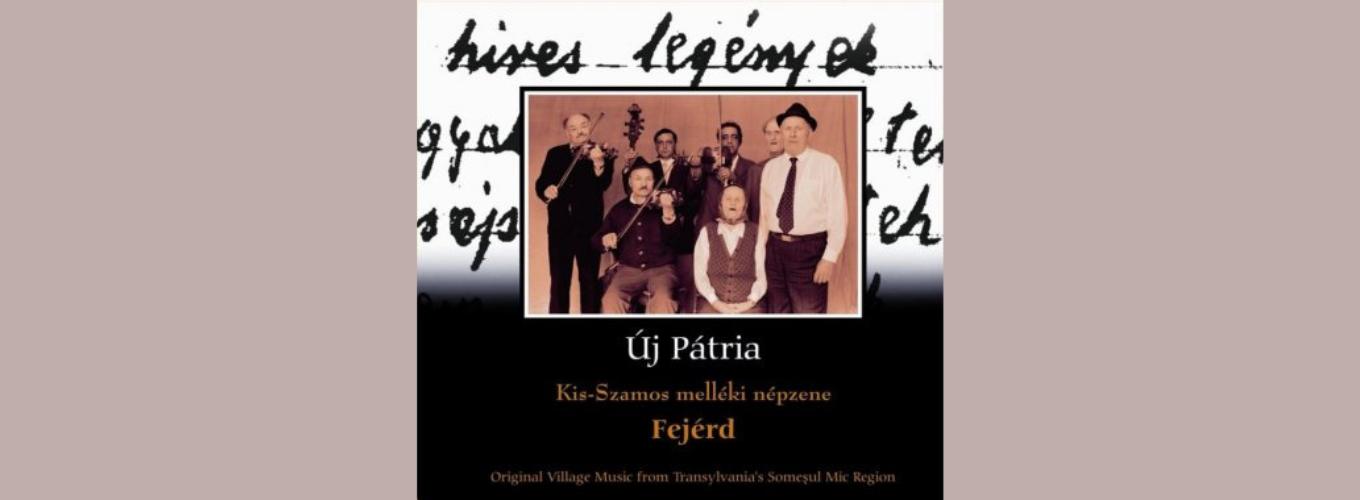
Fejérd - Original Village Music from Transylvania’s Someşul Mic Region - New Patria series
Fejérd is a rather interesting, today nearly deserted village at the end of a road. Our collection work with our informants concentrated on the time when they were young and the village was still “alive” – rather than on the present sad circumstances there.
Before World War II, Fejérd was a village with mixed ethnic population of Romanians and Hungarians, with 10 Gypsy families. The musicians came from the Gypsy families, the most famous of which was the Dogi family with two first violinists: Sándor and János. These Gypsy musicians, like the elder Albu, were Calvinist “Hungarian” Gypsies.
The next generation became Romanian orthodox and tried to shed their Gypsy identity and language by becoming Romanian. In the desire to advance with the times, they moved to block apartment buildings in the city and recorded cassettes of popular Romanian music. During our collection work they claimed a half-hearted Romanian identity and said they did not know the Gypsy language; but their story fell apart as soon as we began to ask them about the Gypsy melodies and Fejérd traditions.
1. Mulatságból hazakísérő nóták
(After a party on the way home) 3’ 13”
2. Szabó Sándor ritka legényese és csűrdöngölő
(Men’s dances) 8’ 00”
3. Româneşte bătrâneşte (Men’s dance) 4’ 28”
4. Almás menti román pár (csárdás, hârţag)
(Couple dances from Almaş region) 8’ 01”
5. Româneşte és hârţag
(Couple dances) 6’ 22”
6. István-köszöntő
(St. Stephen name day greeting) 2’ 27”
7. Csűrdöngölő
(de-a sărita) (Men’s dance) 5’ 55”
8. Fejérdi menyasszonykísérő (De uliţă) és menyasszonytánc
(Music for the bride) 6’ 59”
9. Magyar menyasszonykísérő ének
(Hungarian song for the bride) 2’ 12”
10. Csárdás és hârţag
(Couple dances) 10’ 02”
11. Hore, româneşte, târnăveana és târnăveana în secundă
(Romanian dance cycle) 14’ 36”
Összidő (Total time) 72’ 42”
Válogatta – Selected by: KELEMEN László
ADATKÖZLŐK / PERFORMERS – INFORMANTS
Gabor Alexandru „Albu” (1939, Fejérd) – hegedű / violin
Gabor Ioan „Albu” (1941, Fejérd) – hegedű / violin
Kovács Péter (1949, Fejérd) – 3 húros brácsa / 3 stringed viola
Filaton József „Pupu” (1961, Kolozs) – nagybőgő / double bass
Kalló Géza (1932, Fejérd) – ének / voice